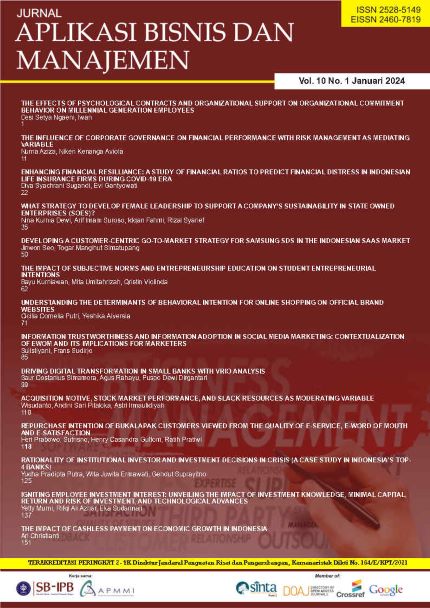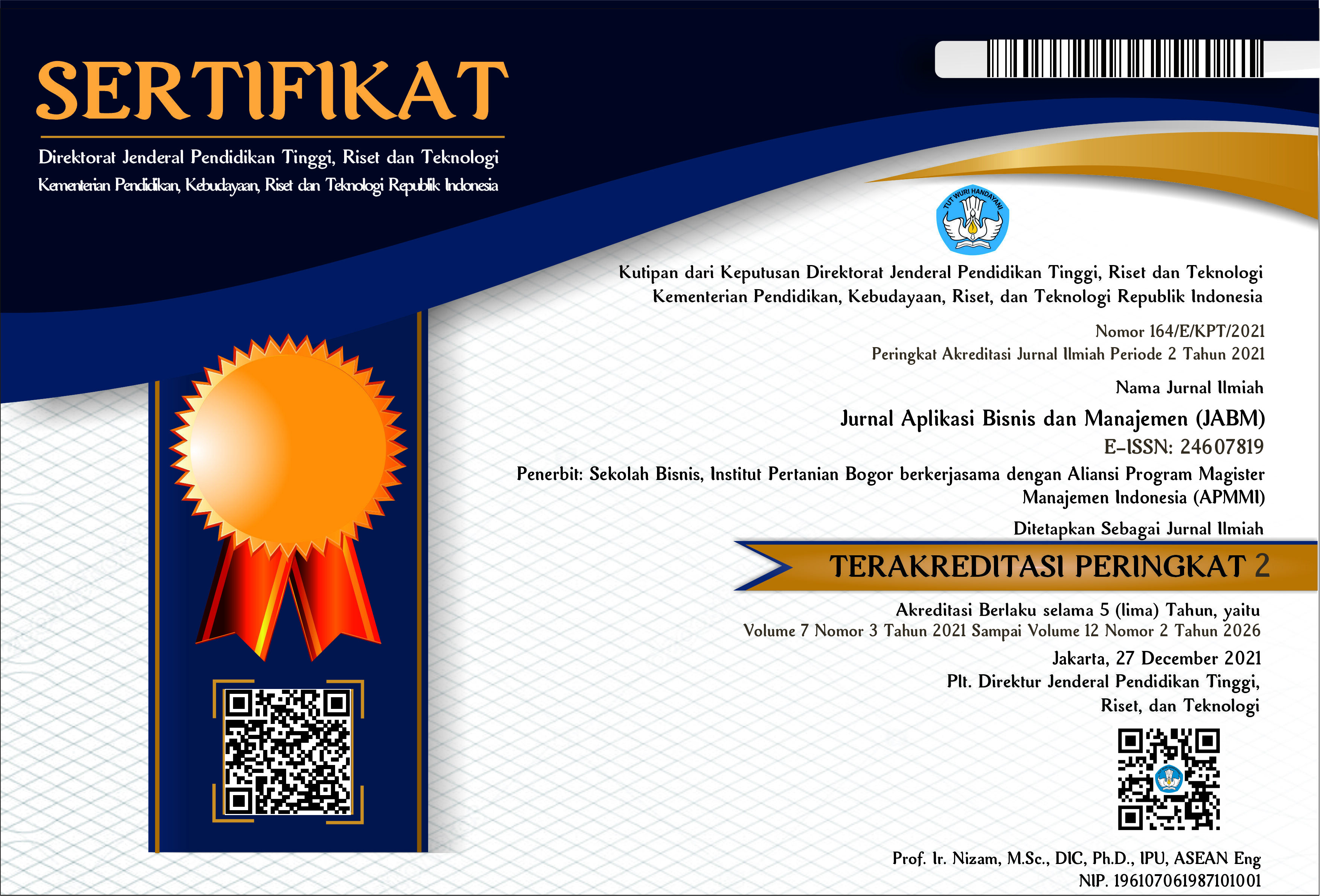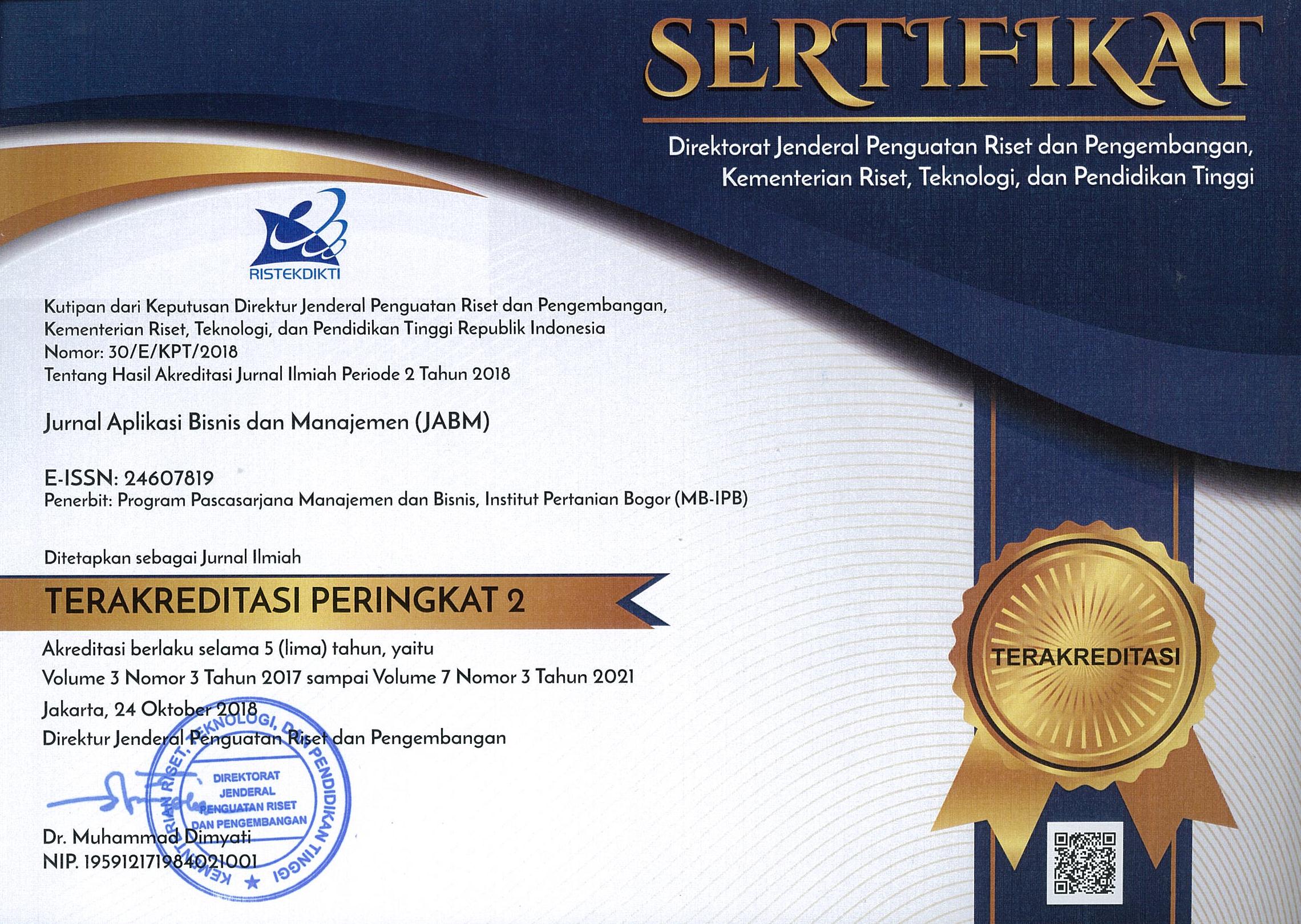Understanding The Determinants of Behavioral Intention For Online Shopping on Official Brand Websites
Abstract
The coronavirus pandemic has created a shift in consumer attitudes toward online shopping and made the business competition very competitive. Interestingly, there are far more businesses using the marketplace than using their website. This study investigates the factors explaining behavioral intention toward online shopping on brand websites. The authors propose an integrated model where trust and attitudes mediate relative advantage, eWOM, perceived web qualities, and e-service qualities. Data collection was carried out in March 2023 through a survey that was distributed to Indonesian online shoppers and empirically tested using PLS-SEM estimation. Respondents in this study totaled 301 people who are Indonesian residents aged 18 years and over and have purchased fashion products online in the last 3 months. The present paper bridges a gap pertaining to antecedents of behavioral intention toward online shopping by using four main predictors such as relative advantage, eWOM, perceived web qualities, e-service qualities, and incorporating the mediating effect of trust and attitude toward online shopping. The result shows that perceived web quality and e-service quality have a positive and significant effect on behavioral intention. Second, behavioral intention is mediated by trust and attitude towards online shopping for relative advantage and eWOM. Therefore, online entrepreneurs need to build trust in their websites by increasing relative advantage, eWOM, perceived web quality, and e-service quality so that consumers have a good perception of the brand so they have the intention to shop online.
Keywords: brand websites, eWOM, web quality, e-service quality, trust








